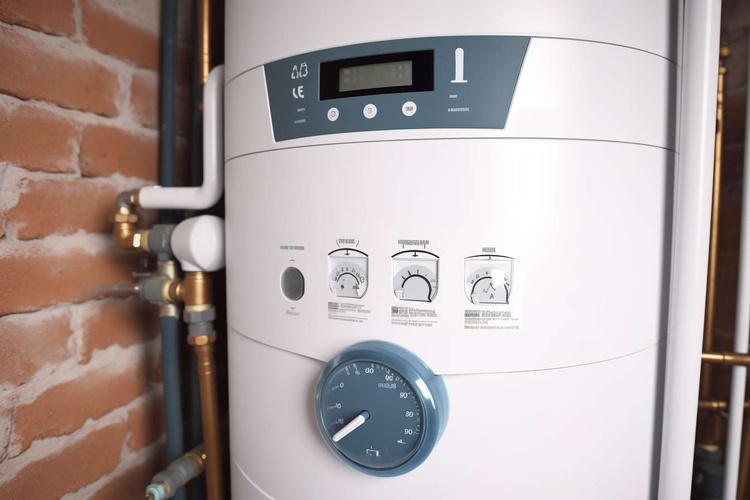Efficient Water Heating: Understanding Your Home Hot Water System
A reliable hot water supply is essential for any modern home, providing comfort and convenience for daily activities like showering, washing dishes, and doing laundry. At the heart of this system lies your water heater or boiler, a crucial component that ensures you have access to hot water whenever you need it. In this article, we'll explore the world of home hot water systems, focusing on water heaters and boilers, and how they contribute to efficient bathroom heating solutions.

What is the difference between a water heater and a boiler?
While both water heaters and boilers serve the purpose of heating water, they operate differently and have distinct applications. A water heater is primarily designed to heat and store water for immediate use in taps, showers, and appliances. On the other hand, a boiler heats water to provide both hot water and central heating for your home. Boilers typically work by circulating hot water or steam through radiators or underfloor heating systems, offering a comprehensive heating solution for your entire house.
How do tankless water heaters compare to traditional models?
Tankless water heaters, also known as on-demand water heaters, have gained popularity in recent years due to their energy efficiency and space-saving design. Unlike traditional tank-based models that store and continuously heat a large volume of water, tankless heaters warm water only when needed. This results in lower energy consumption and reduced standby heat loss. However, tankless models may have limitations in terms of flow rate, potentially struggling to meet high simultaneous demand in larger households.
What are the benefits of a smart water control system?
Integrating smart water control technology into your home hot water system can offer numerous advantages. These systems allow you to monitor and adjust your water heating settings remotely via smartphone apps, optimizing energy usage and reducing waste. Smart controls can learn your household’s hot water consumption patterns, adapting heating schedules accordingly. Some advanced systems even incorporate leak detection features, alerting you to potential issues before they escalate into costly problems.
How can you improve the efficiency of your bathroom heating solution?
Enhancing your bathroom heating solution goes beyond just having an efficient water heater or boiler. Consider installing towel warmers or underfloor heating to complement your existing system. These additions not only provide extra comfort but can also help reduce overall energy consumption by allowing you to lower the thermostat setting in your bathroom. Additionally, proper insulation of hot water pipes and tanks can minimize heat loss, ensuring that the hot water reaches its destination at the desired temperature.
What are the latest innovations in home hot water systems?
The water heating industry has seen significant advancements in recent years, with a focus on energy efficiency and sustainability. Heat pump water heaters, which extract heat from the surrounding air to warm water, are becoming increasingly popular due to their low energy consumption. Solar water heating systems, while not new, have become more efficient and affordable, offering an eco-friendly option for homeowners. Additionally, hybrid systems that combine traditional water heaters with heat pump technology are emerging as a versatile solution for various climates and household needs.
How do you choose the right water heater or boiler for your home?
Selecting the appropriate water heater or boiler for your home depends on various factors, including your household size, hot water demand, available space, and energy preferences. Consider the fuel type (gas, electric, or renewable), capacity, and energy efficiency ratings when making your decision. It’s also important to factor in the long-term costs, including purchase price, installation, and ongoing energy expenses. Consulting with a professional plumber or heating specialist can help you make an informed choice based on your specific needs and local regulations.
| System Type | Fuel Source | Pros | Cons | Estimated Cost Range |
|---|---|---|---|---|
| Traditional Tank Water Heater | Gas/Electric | Lower upfront cost, simple technology | Higher energy consumption, limited hot water supply | £300 - £1,000 |
| Tankless Water Heater | Gas/Electric | Energy-efficient, space-saving | Higher upfront cost, potential flow rate limitations | £500 - £2,000 |
| Combi Boiler | Gas | Efficient, provides heating and hot water | May struggle with high simultaneous demand | £1,500 - £3,500 |
| Heat Pump Water Heater | Electric | Very energy-efficient, eco-friendly | Higher upfront cost, requires specific installation conditions | £1,200 - £3,000 |
| Solar Water Heater | Solar (with backup) | Low operating costs, environmentally friendly | High upfront cost, dependent on climate | £3,000 - £7,000 |
Prices, rates, or cost estimates mentioned in this article are based on the latest available information but may change over time. Independent research is advised before making financial decisions.
In conclusion, understanding your home hot water system is crucial for ensuring comfort, efficiency, and cost-effectiveness in your daily life. Whether you opt for a traditional water heater, a modern boiler, or an innovative smart water control system, making an informed decision based on your specific needs and circumstances will lead to a more satisfying and efficient home heating experience. As technology continues to advance, staying informed about the latest developments in water heating solutions can help you make the best choices for your home and the environment.




